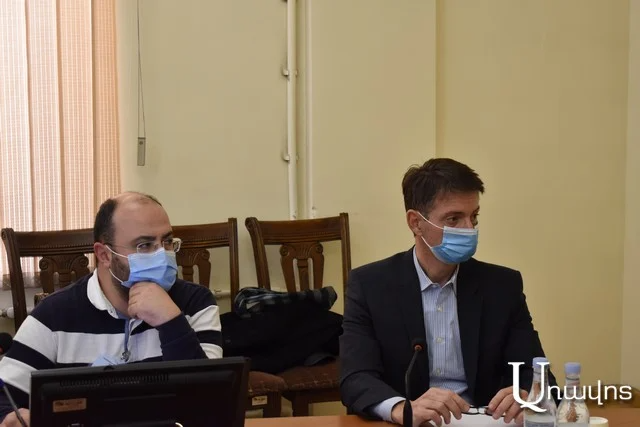a Near-Term Outlook
medium.com. The outbreak of Covid19 has already disrupted business operations and is challenging the global market by affecting everything from travel, hospitality, supply chain to entertainment, local businesses and, of course, our daily lifestyle. The consequences have become even more far-reaching: our personal and professional lives and daily habits have changed enormously over the course of a few short weeks.
The quarantine upended 2020 plans also for many technology companies in Armenia. Below, several of Armenian tech leaders share their outlook of the current business situation and the value they’ve found in a remote workforce. We would like to share their insights and perspectives to inspire your business performance and routine while working remotely.
A Remote Workforce and First WFH Challenges
Read also
Remote work and video conferences are the new normal for many industries. With their notoriously flexible nature, many tech companies and startups are jumping right into it with a positive attitude, motivation and lots of nice visuals.
At the same time, this situation is creating some challenges and changes for those, who are more used to face-to-face discussions, office meetings and office life in general.
What was the main challenge you could see during this first month of WFH routine?
Ruben Osipyan, Co-founder at Himnark
“Taking into account the specifics of our Himnark platform, our operations were designed in a way that most part of our work is done in the cloud. Project management is done with Jira, source code is kept in Bitbucket, our team is distributed and works in Yerevan, Vanadzor and Stepanakert, so having meetings online was a regular task for us. We can say that WFH didn’t have a significant impact on us.”Rafayel Baghian, Co-Founder and CMO at Preezma
“Long Story Short — 100% of challenge was guaranteed by our wonderful KIDS!!!For the rest, we couldn’t see big challenges and it was a pretty easy transformation for our company. We switched our daily stand-ups to the Zoom and replaced our office coffee breaks with digital coffee breaks. Of course, we miss each other, and know that face-to-face meetings and office relationships cannot be replaced.
We could see lots of positive changes: Our team productivity has increased, because we no longer spend time on traffic jams. We started eating healthier. Some employees start the day with morning workouts, and most importantly, we spend more time with families and kids. Also, there is no need to be back home after work and buy groceries 🙂
On the other hand, while some people started working on their time management; others lost control of time and started working all day long. We now encourage everyone to work on usual work hours, to disable notifications or not to reply to minor requests after working hours.
Postponed Projects and Missed Partnerships
Many networking events and tech conferences were cancelled or postponed, so it created difficulties for meeting new people and making interesting business connections. As many other industries, companies in tech industry also face the prospect of missed partnership opportunities and delayed projects.
For tech startups and software outsourcing companies working for the tourism, travel, logistics and offline events industries, things seem complicated as they and their clients are directly affected by the quarantine.
Did this situation have any impact on your clients’ business and operations during the last two months?
Aram Andriasyan, CEO and Co-Founder of Fifth
“We are in software outsourcing business and we are directly connected to the industries where our business partners work. Which means, if their business is affected, then we also see the consequences.Yes, this quarantine had an impact on our clients too. Some of them have reduced the teams for about 10–20%. Current situation is challenging, but in the long run we believe that there will be more tech jobs and demand in software development teams because of the need of digital transformation, thus we use this time to come up with new value offering and tech solutions for international businesses.”
Gor Vardanyan, CEO and Co-Founder of Fimetech
“Of course, we understand that this situation challenges both sides financially and emotionally. We try to come up with better financial offering for some of our loyal customers, to make sure the current situation doesn’t have a big impact of their project development processes”.Hamayak Harutyunov, CEO and Co-Founder of Preezma
“This situation is unpredictable. Eventually most of the businesses will be under certain risk․ The current situation is causing some side effects; for example, business owners are stepping down or at least think about slowing down to save or hold their existing capital. That is why at Preezma we take the responsibility to talk to our partners, support them and come up with game-changing ideas to help them drive business processes with the help of technology.”Armen Adamyan, Founder and CEO of Esterox
“Some of our clients have paused and postponed the development process and we agreed to be back to some important discussions later. But, in process we also see that many businesses understood the need of having digital presence and are looking for web development partners. So, we are doing our best to use this time and help such companies in gaining online presence in a fast and effective way.”
More Risks or Opportunities
While the quarantine has created lots of difficulties for some businesses, it has also raised demand for certain types of services and gave birth to new startups and business models. Because of the need of social distancing, people have to stay home and organize everything online. Thus, a boom in the delivery sector is underway, with more people ordering food, clothes and groceries to their door to keep to their quarantine.
Keeping entertained is also on the top of many people’s minds, which means good news and better business outcomes for Netflix, TV, online gaming, e-sports and social media apps.
Do you see more risks or opportunities for you and other software development companies?
Ruben Osipyan Co-Founder at Himnark
“We could see both. One of our potential clients asked to postpone the onboarding process and get back to this once the quarantine is over.
On the other hand, we could see a massive shift to cloud technologies, which opened a window of opportunities for us. During the recent several weeks we onboarded new customers and we are motivated to help them improve their HR-related operations and save on HR costs by using our cloud-based platform.”Rafayel Baghian, Co-Founder and CMO at Preezma
It’s a risk and opportunity game — depends on how flexible the company is, and this refers to all kinds of companies, not only to software development ones.Let’s look at statistics and history. All of us know that it is not the first time that the global market is challenged. There are lots of companies that have been established during recessions, for example, IBM in 1896, Disney in 1923, Apple in 2001, Uber, Whatsapp, Slack in 2009, Instagram in 2010, and there are lots of companies which closed during recessions. So, what was the difference?
How do some companies become stronger, and others fail during such situations? We guess in most cases the main reason is the flexibility of businesses and the fear or courage of taking actions.
So, going back to your question — for the software companies that are less flexible and continue operating in the same way and wait for a good time to take some actions, there are more risks than opportunities. The software companies that change their strategy, adapt to the new reality, and react, will have many new opportunities.
Gor Vardanyan, Co-Founder of Chessify
“We could see more interest in our platform (50% increased the number of users) since our Chessify solution introduces a new era of mobile, cloud, and AI chess toolset for the growing chess community. Thus, for us it is viewed more as an opportunity.”
Upon the conclusion, what would you recommend to your colleagues and technology partners in order to stay focused, motivated and benefit from the remote work?
Aram Andriasyan, CEO and Co-Founder of Fifth
Firstly, use communication and management tools to make sure the transparency of all data for all team members, starting from the development team finishing with the stakeholders. We are using tools such as Slack for communication, Jira for management and Zoom/Hangouts for having video calls.Secondly, try to do HR activities more frequently in order to make sure that your team members are not alone and are connected with each other most of the time. We held different types of online board games, interesting polls, etc. You can find some online board games on Tabletopia .
And finally, be there for your team! We have increased the response time from our board members in order to tackle down any minor or major issues that each employee may have.
Hamayak Harutyunov, CEO and Co-Founder at Preezma
Make sure you are on track, and no one in your team has a lack of motivation.Stay demanded! The main goal is not to stay as you have been for a long time and simply survive during or after the crisis. If there’s a need to restructure and rethink your business in order to be demanded, do it!
To sum up, looking ahead, we expect the pace of digital transformation and investment in technology to increase and create new opportunities for the tech players all around the world. Thus, tech companies in Armenia should take proactive steps to build more flexibility into their businesses to weather the outbreak’s consequences and emerge in a stronger and favorable position for the future.
Finally, thank you to all those who contributed with their answers.
WRITTEN BY
Matching Armenian High-Tech with International Enterprises. We help you find and partner with the best tech companies from Armenia.






























































